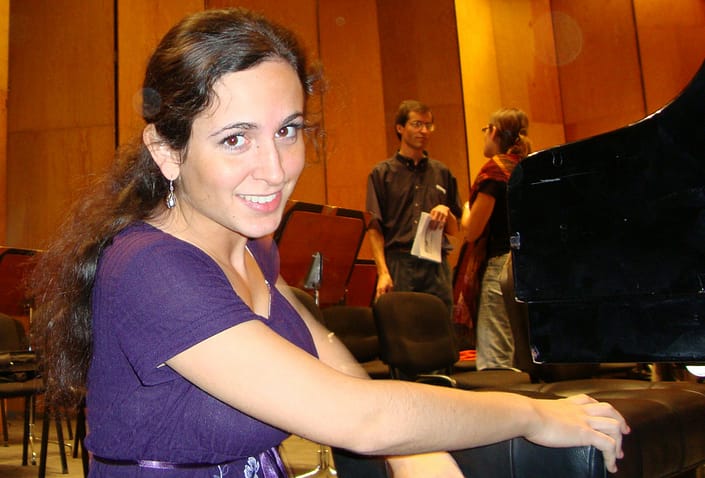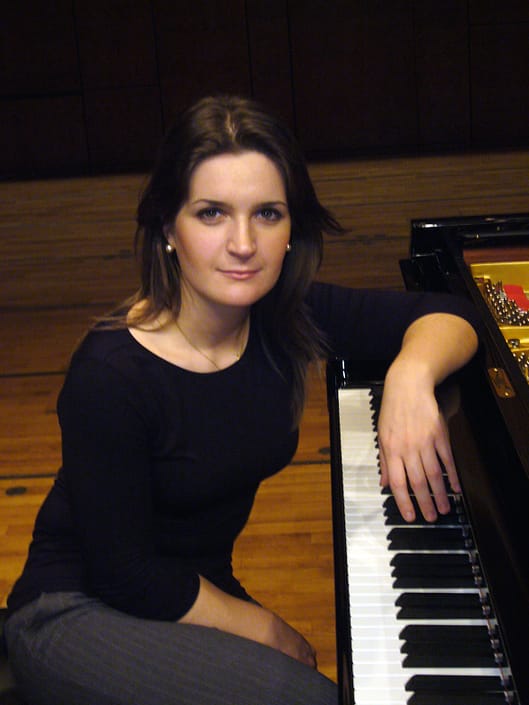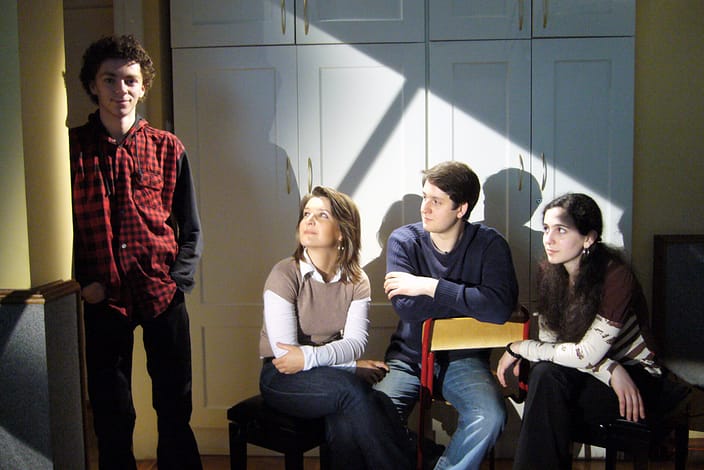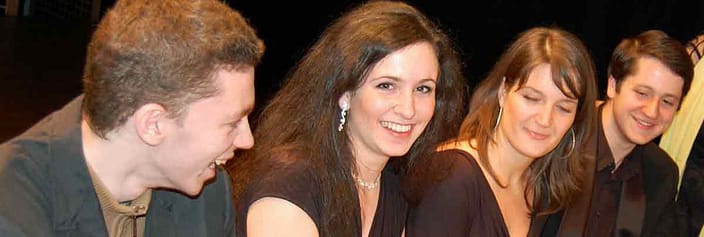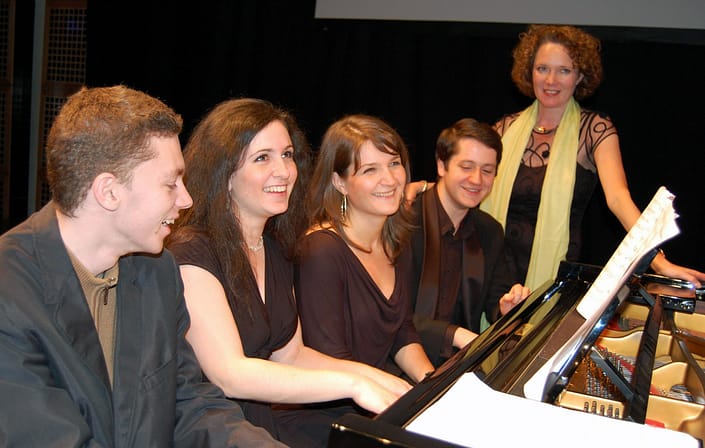At the age of eighteen, Irina Tschistjakowa can already look back at a ten-year international career of concerts. Irina was the youngest of the four protagonists in the documentary film Russia’s Wonder Children, which celebrated its original premiere at the Berlinale 2000. Ten years later, the young geniuses of yesteryear are now competitors in the tough field of music. They now experience the tragedy that befalls many child prodigies: while they wereAt the age of eighteen, Irina Tschistjakowa can already look back at a ten-year international career of concerts. Irina was the youngest of the four protagonists in the documentary film Russia’s Wonder Children, which celebrated its original premiere at the Berlinale 2000. Ten years later, the young geniuses of yesteryear are now competitors in the tough field of music. They now experience the tragedy that befalls many child prodigies: while they were still children, they could amaze the public through the contrast between their delicate appearance and precocious ability—but now, it is all about the sublimely perfect performance and the top prizes at competitions, as well as simple luck. They all want to attain the pinnacle of the Mount Olympus of piano playing, but the air there is very thin. And there is only enough room for a handful of talented virtuosos. Like Irina, Nikita Mndoyants, 19, Dmitri Krutogolovy, 20, and Elena Kolesnitschenko, 26, have remained faithful to their music. They have spent tens of thousands of hours practicing the piano. Has all the hard work been worth it? Did the childhood that they barely experienced leave any psychological scars? The innocent simplicity of the early years is long gone by now, and the concert appearances have become rarer. And it’s not just the size of their bodies that has changed: the world of classical music has also changed since then. Performing artists are now expected to act like pop musicians and be as attractive as a Hollywood star. How can all that be combined under one hat alongside physical and spatial precision when performing on stage? The thresholds for psychical and psychological pain are commonplace in the everyday work life of a professional concert pianist, and they have to overcome time and again. And it is incredibly difficult to add something new, individual, refreshing to the world’s collected concepts of piano playing. The documentary THE COMPETITORS narrates a universal story about success and failure within the thoroughly commercialised world of classical music. Up close and personal with the four protagonists, and utilising moving flashbacks from the film Russia’s Wonder Children, the documentary presents a compassionate look at growing up under the constraints of an almost inhumane competition. Within her film, which she has been working on for a number of years in Russia, Western Europe and Mexico, Irene Langemann dramatically and poetically interweaves the highs and lows in the lives of her protagonists.
© Copyright – Lichtfilm

